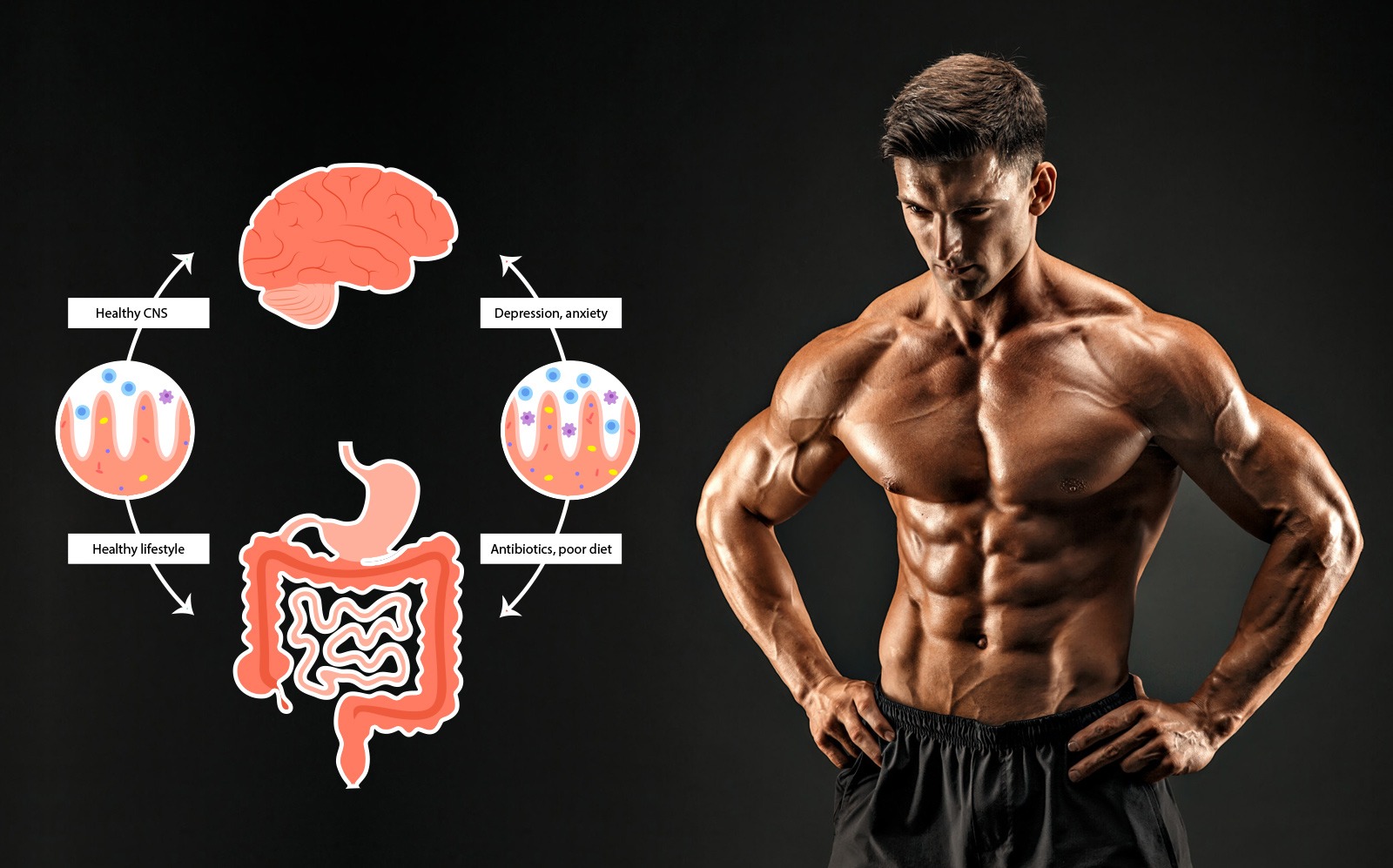
The Link Between Gut Health and Belly Fat — Probiotics to the Rescue!
Emerging research indicates a significant connection between gut health and abdominal fat accumulation. The gut microbiome, comprising trillions of bacteria, plays a crucial role in digestion, metabolism, and immune function. An imbalance in this microbial community, known as dysbiosis, has been linked to weight gain and increased belly fat. Probiotics—live beneficial bacteria—may help restore gut balance, potentially aiding in weight management and reduction of abdominal fat.
💪 Fitness Guru
21 min read · 26, Feb 2025

Introduction
In the quest for a healthy body and a flat tummy, most people focus on calorie counting, intense workout routines, or trendy diet plans. However, what often goes unnoticed is the crucial role that gut health plays in managing belly fat. Yes, you heard it right — your digestive system does much more than just process food. It has a direct impact on your metabolism, immune system, and even your mental health. One key player in this complex system is the community of microorganisms living in your gut, collectively known as the gut microbiome. And guess what? Probiotics — the "good bacteria" — may hold the key to reducing that stubborn belly fat.
Understanding the Gut Microbiome
The gut microbiome is a bustling ecosystem of trillions of microorganisms, including bacteria, viruses, fungi, and other microbes, residing primarily in your large intestine. This microscopic world is far from insignificant; in fact, it performs numerous essential functions:
- Digesting fiber and other nutrients
- Producing vitamins like B12 and K
- Regulating immune responses
- Protecting against harmful pathogens
- Influencing mood through the gut-brain axis
A balanced gut microbiome, rich in diverse bacterial species, promotes good health. However, an imbalance — called dysbiosis — can trigger various issues, including weight gain and belly fat accumulation.
The Gut-Belly Fat Connection
So how exactly does gut health influence belly fat? Let’s break it down:
- Inflammation and Fat Storage: An unhealthy gut produces inflammation by releasing endotoxins into the bloodstream. This systemic inflammation can interfere with insulin sensitivity, causing your body to store more fat, especially around the abdominal area.
- Hormonal Impact: The gut microbiome regulates hormones like ghrelin (hunger hormone) and leptin (satiety hormone). An imbalance may increase cravings and overeating, contributing to belly fat.
- Metabolism Regulation: Certain gut bacteria affect how efficiently you extract calories from food. For example, people with more Firmicutes bacteria tend to absorb more calories, leading to weight gain, while Bacteroidetes bacteria are linked to leanness.
- Fat Storage Genes: Recent studies show that gut bacteria can influence gene expression related to fat storage, promoting or inhibiting the accumulation of visceral fat — the fat stored deep within the belly.
Probiotics to the Rescue
Probiotics are live microorganisms that provide health benefits when consumed in adequate amounts. These "friendly bacteria" can help restore balance in your gut microbiome, tackling the root causes of belly fat accumulation. Let’s dive into how probiotics work their magic:
- Reducing Inflammation: Probiotics like Lactobacillus and Bifidobacterium species help reduce inflammation by strengthening the gut lining and preventing endotoxins from leaking into the bloodstream.
- Enhancing Metabolism: Studies show that Lactobacillus gasseri can lower belly fat by reducing fat absorption and boosting metabolism. Participants in one study lost 8.5% of their belly fat over 12 weeks just by adding this probiotic to their diet.
- Regulating Appetite: Probiotics help balance hunger hormones like ghrelin and leptin, curbing unhealthy cravings and promoting a sense of fullness, ultimately reducing calorie intake.
- Improving Insulin Sensitivity: Balanced gut bacteria enhance insulin function, preventing blood sugar spikes that contribute to fat storage.
Best Probiotic-Rich Foods
Incorporating probiotic-rich foods into your daily diet is a natural way to improve gut health and combat belly fat. Here are some excellent options:
- Yogurt: Opt for unsweetened, live-culture yogurt.
- Kefir: A tangy, fermented milk drink loaded with probiotics.
- Sauerkraut: Fermented cabbage packed with both probiotics and fiber.
- Kimchi: A spicy Korean dish made from fermented vegetables.
- Miso: A Japanese seasoning made from fermented soybeans.
- Tempeh: Fermented soybean product with a firm texture.
- Kombucha: A fizzy, fermented tea full of probiotics
Probiotic Supplements: Are They Worth It?
While probiotic foods are fantastic, supplements can be a convenient way to boost your intake, especially if you struggle to include fermented foods in your meals. When choosing a probiotic supplement, keep these tips in mind:
- Check the strains: Look for strains like Lactobacillus gasseri, Bifidobacterium lactis, and Lactobacillus rhamnosus.
- CFU count: Aim for a supplement with at least 10 billion CFUs (colony-forming units).
- Survivability: Ensure the product has an enteric coating to protect the bacteria from stomach acid.
Final Thoughts
Your gut is more than just a digestive powerhouse — it’s a central player in managing weight and belly fat. Nurturing your gut health by consuming probiotic-rich foods or supplements can help reduce inflammation, regulate metabolism, and control appetite, all contributing to a slimmer waistline. So the next time you think about losing belly fat, don't just focus on crunches and diets — give your gut the care it deserves. Probiotics might just be the secret weapon you've been looking for!
The relationship between gut health and belly fat underscores the importance of maintaining a balanced gut microbiome for effective weight management. Incorporating probiotics through diet or supplements may offer benefits in reducing abdominal fat, but they should complement a holistic approach that includes a nutritious diet, regular exercise, and healthy lifestyle practices. Consulting with healthcare professionals can provide personalized guidance tailored to individual health needs.
Q&A Section:
Q1: How does gut health influence belly fat?
Ans: Gut health affects belly fat through the balance of bacteria in the digestive tract. An imbalance, or dysbiosis, can lead to increased fat storage, particularly in the abdominal area. This imbalance may influence metabolism and appetite regulation, contributing to weight gain.
Q2: Can probiotics help reduce belly fat?
Ans: Certain strains of probiotics have shown potential in reducing belly fat. For instance, studies have found that specific strains may aid in weight loss and decrease abdominal fat. However, more research is needed to confirm these effects.
Q3: Which probiotic strains are most effective for weight loss?
Ans: Research suggests that strains like Lactobacillus gasseri may be effective in reducing abdominal fat. However, individual responses can vary, and more studies are necessary to determine the most effective strains for weight loss.
Q4: How do probiotics influence weight management?
Ans: Probiotics may impact weight management by stabilizing insulin levels, reducing inflammation, and controlling appetite. They help maintain a healthy gut microbiome, which is essential for efficient metabolism and fat storage regulation.
Q5: Are there natural food sources of probiotics that can aid in reducing belly fat?
Ans: Yes, consuming probiotic-rich foods like yogurt, kefir, sauerkraut, kimchi, and other fermented products can support gut health. Incorporating these into a balanced diet may assist in weight management and reduction of abdominal fat.
Q6: Is it necessary to take probiotic supplements for weight loss?
Ans: While probiotic supplements can be beneficial, they are not essential for weight loss. A diet rich in natural probiotic foods, combined with prebiotics (fiber-rich foods that feed beneficial bacteria), regular exercise, and healthy lifestyle choices, can effectively support gut health and weight management.
Q7: How long does it take to see results from probiotics on belly fat?
Ans: The timeframe varies among individuals. Some studies have observed changes within 8–12 weeks of consistent probiotic consumption. However, results depend on factors like diet, exercise, and overall health.
Q8: Can improving gut health alone lead to significant weight loss?
Ans: Improving gut health is a crucial component but should be part of a comprehensive approach, including a balanced diet, regular physical activity, and other healthy habits, for effective and sustainable weight loss.
Q9: Are there any side effects of taking probiotics for weight loss?
Ans: Probiotics are generally safe for most people. Some may experience mild digestive symptoms, such as gas or bloating, initially. It's advisable to consult with a healthcare provider before starting any new supplement regimen.
Q10: How can I naturally improve my gut health to aid in reducing belly fat?
Ans: To naturally enhance gut health, focus on a diet rich in fiber, fruits, vegetables, and fermented foods. Regular physical activity, adequate sleep, and stress management also play vital roles in maintaining a healthy gut microbiome, which can aid in reducing belly fat.
Similar Articles
Find more relatable content in similar Articles

The Science of Breathwork: Fitness Beyond Muscles...
Exploring how conscious contro.. Read More

Fitness in Tiny Apartments – Creative Space-Saving Workouts...
In today’s urban lifestyle, co.. Read More

Sweat Science – What Your Sweat Tells About Your Fitness Lev..
Sweat is more than a sign of e.. Read More

Microbiome and Muscle: Gut Health as a Hidden Fitness Tool...
Unlock the hidden potential of.. Read More
© 2024 Copyrights by rFitness. All Rights Reserved.